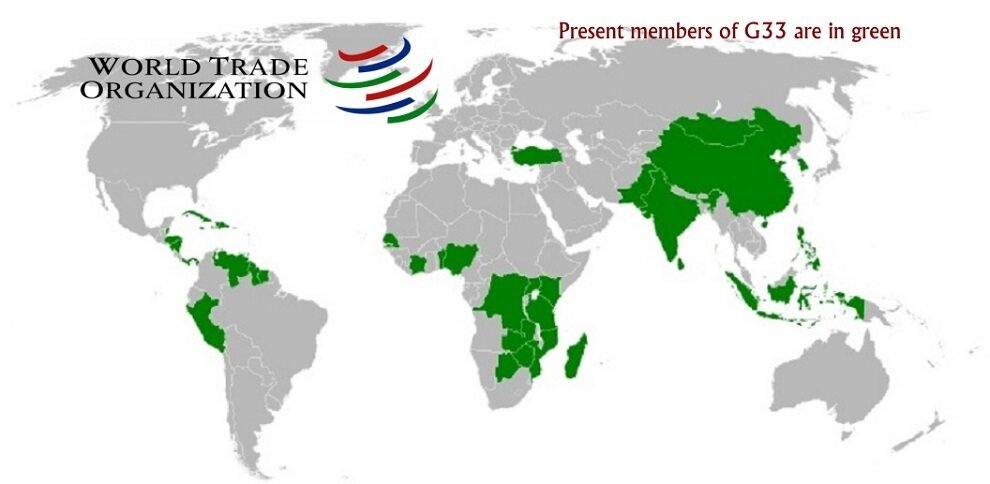‘The G-33 proposal addresses India’s fundamental interest, as the Government has been pushing for a permanent solution that will allow it to continue with its Minimum Support Price (MSP) programs for food grains such as rice and wheat without fear of exceeding limits,’ said a source tracking the matter.
Despite agreeing with the G-33 group of developing countries’ key suggestion that subsidies for food security programs be allowed without limits, India has yet to endorse a proposal on a permanent solution for public stockholding made at the World Trade Organization (WTO). According to sources, this may be due to the additional provision of not exporting from the procured stocks, which may harm its economic interests.
Also Read: Developed countries say India will not be able to find a permanent solution to the MSP issue
Long-term solution
However, India is hesitant to commit to not exporting from the procured stock because it may jeopardize the country’s farm export drive, according to a source familiar with the situation.
The proposal put forward by the G-33, a group of developed countries with which India has long been involved, will be scrutinized and commented on by WTO members at a meeting of the Committee of Agriculture later this week.
Attempts are being made at the WTO Ministerial Conference beginning November 30 to reach a permanent solution on public stockholding that will allow developing countries to pursue their public procurement programs without fear of exceeding limits and facing retaliation.
The G-33 has stated in its proposal for a permanent solution that WTO members will not challenge the support provided by developing countries for foodstuffs while pursuing public stockholding programs for food security purposes through the WTO Dispute Settlement Mechanism. This concession will be conditional on countries not exporting from the procured stocks except for international food aid or non-commercial humanitarian purposes.
‘The G-33 anti-circumvention safeguard, which states that a developing country will not export from purchased stocks, has put India in a difficult position, as it now exports both wheat and rice, and farm exports are increasing. It used to export only basmati, so it could argue that the exports were not from purchased stock. Since it has also been exporting non-basmati rice in recent years, the argument no longer holds water. It is now very difficult to demonstrate that exports are not occurring from procured stock,’ said Biswajit Dhar, Professor at Jawaharlal Nehru University.
Foodgrains are in high demand
According to Dhar, India’s exports of par-boiled rice in 2020-21 will be $2.3 billion, while wheat exports will be around $548 million. The country’s food grains are in high demand from African countries, Malaysia, and Bangladesh. ‘India’s new farm laws encourage farm exports. Any move that could jeopardize the country’s export interests would be carefully considered,’ he said.
The WTO Agreement on Agriculture classifies subsidies provided under MSP for public procurement contracts as trade-distorting support, which must be kept within a fixed ceiling of 10% of the value of production. Individually and as part of the G-33, India has fought for the freedom to grant higher MSP, preferably without limits.
Also Read: Pakistani Traders claim India is subsidizing rice exports, wants WTO to investigate
Although a peace clause agreed to by members at the World Trade Organization’s Ministerial meeting in Bali in 2013 allows developing countries to breach subsidy ceilings without fear of retaliation from other members, it is subject to various conditions that are difficult to meet. As a result, developing countries are insisting on a permanent solution to the problem, which was also promised in Bali, at the forthcoming Ministerial Conference in Geneva.



















Add Comment